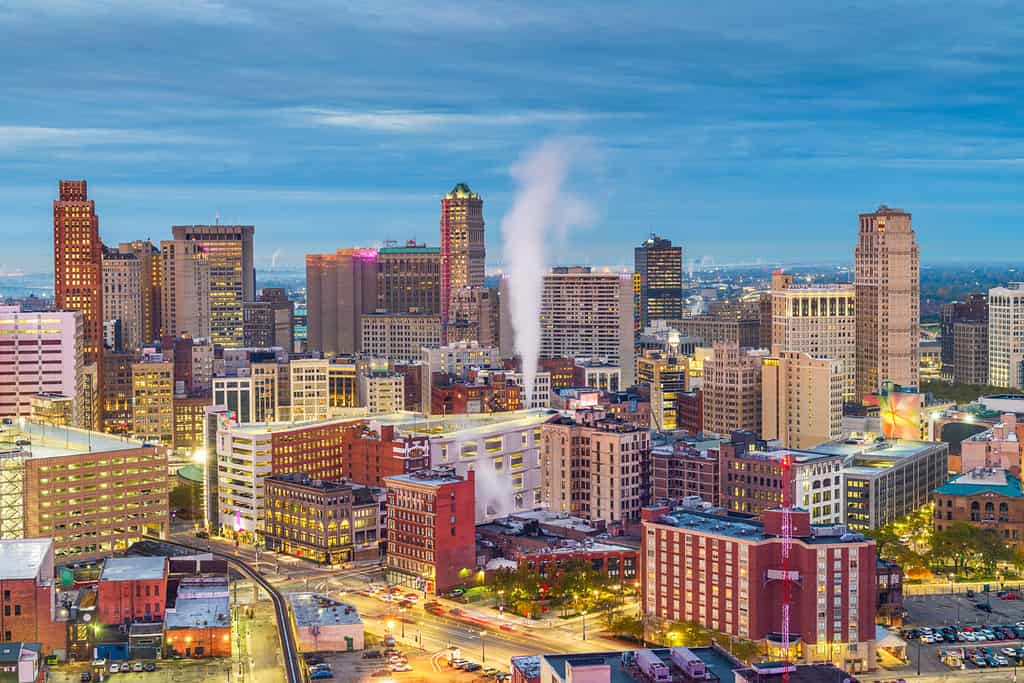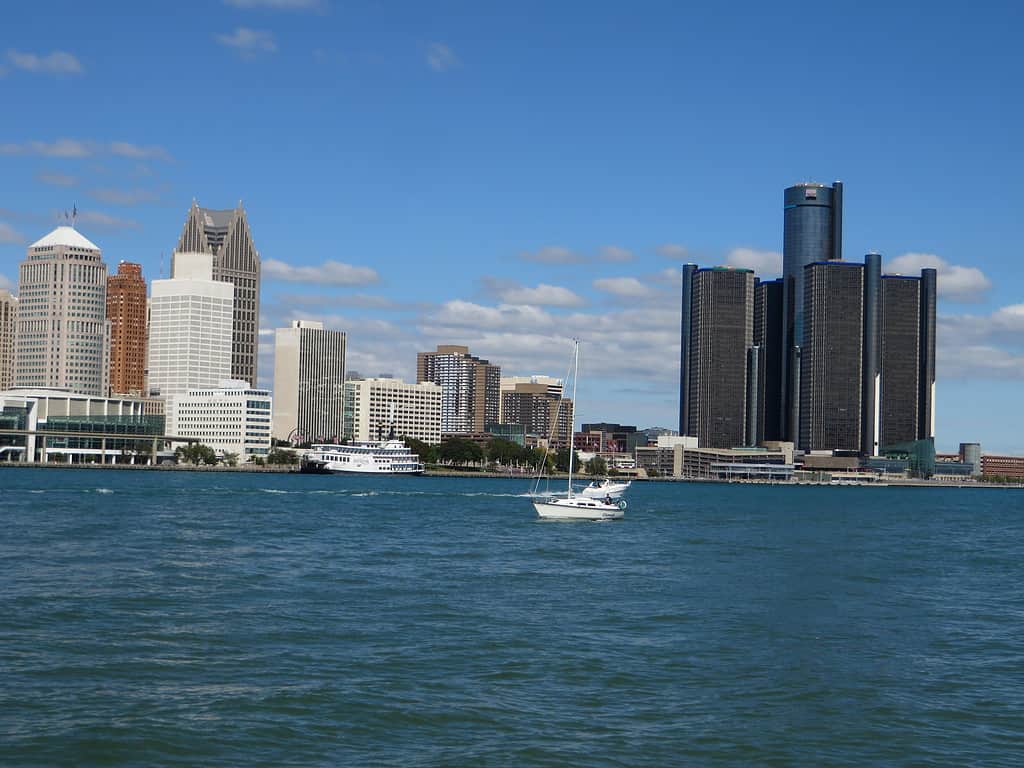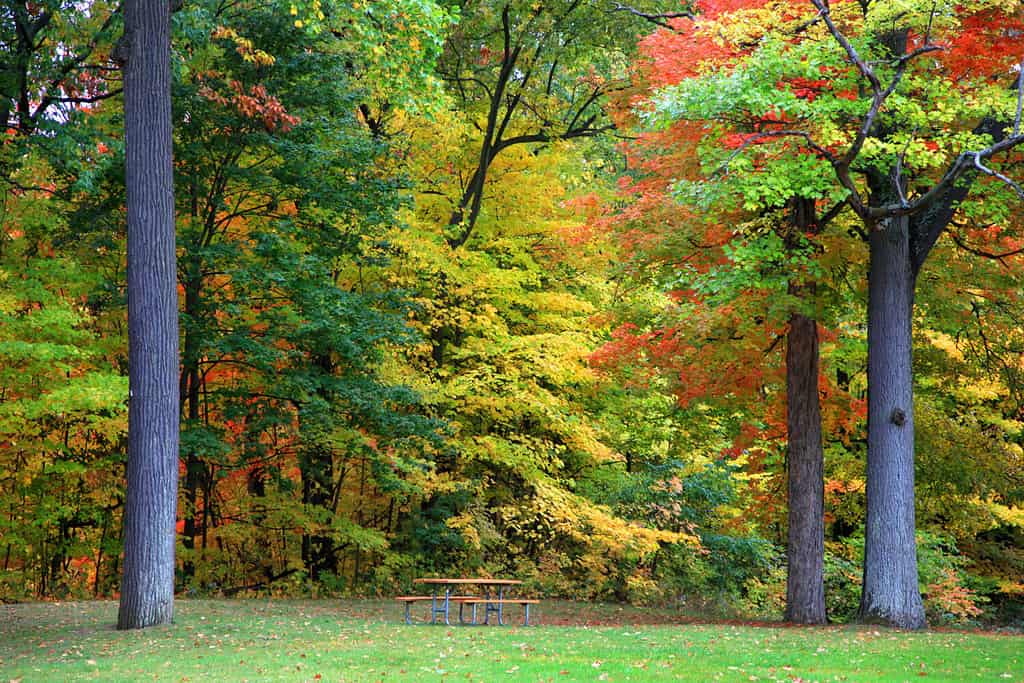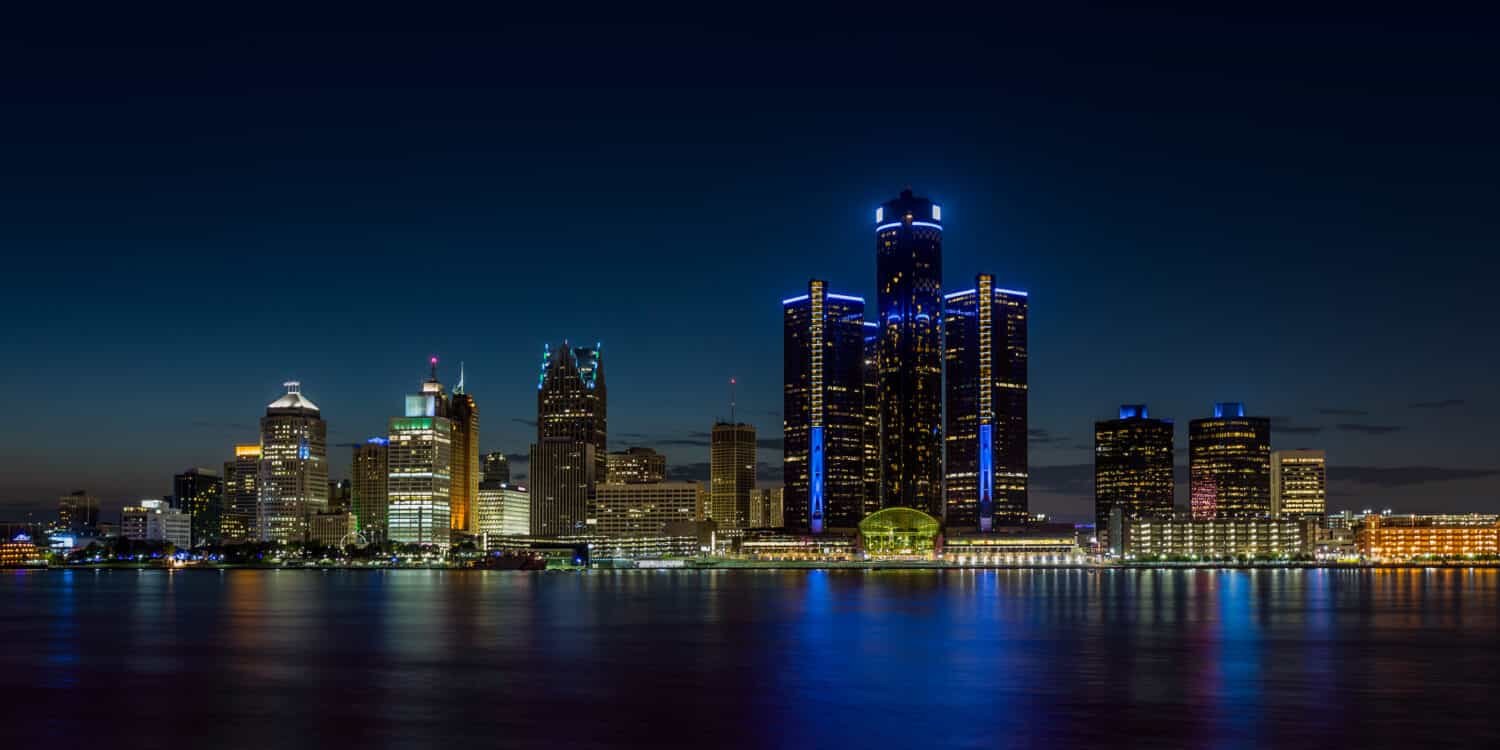How often do you think about the cleanliness of your city? If you live in Michigan, you should consider it more often if you’re in Detroit. While the city has many positive aspects, it ranks as the dirtiest in Michigan and fourth dirtiest nationwide.
Despite Detroit being the dirtiest city in Michigan, it doesn’t negate the good parts of the city. It has a beautiful riverfront, phenomenal sports teams, an enjoyable music scene, and so much to do.
Why It’s Considered Dirty

Detroit ranks as the dirtiest city in Michigan, but it can get better.
©Sean Pavone/Shutterstock.com
What people consider dirty varies based on individual mindsets, but many immediately think of litter. However, other factors contribute to the ranking of the state’s dirtiest cities, including air, water, and noise quality.
When determining the dirtiest cities, experts considered pollution, living conditions, infrastructure, and consumer satisfaction. They scored each location for all four categories and then averaged the four numbers to determine the average. The final number is how these cities rank, and Detroit ranked as the dirtiest city in Michigan.
Detroit’s overall score is 48.3, meaning only three other cities nationwide are dirtier. This score came from a pollution rank of nine, a living conditions rank of 35, an infrastructure rank of 89, and a consumer satisfaction rank of four.
How It Impacts Those Who Live There

The pollution in Detroit can negatively impact those who spend time there.
©Ken Lund from Reno, Nevada, USA / CC BY-SA 2.0 – Original / License
Living in a dirty city isn’t just about seeing unsightly scenes around you. It involves poor health for citizens and animals, including disease and respiratory illness, and poor development of cognitive function in children. A dirty city also attracts pests that can contribute to illness and disease.
Taxpayers are also responsible for paying to clean up their cities, financially impacting everyone who lives there. While taxpayers don’t directly write a check for these things, municipal budgets must include methods for cleaning up the area.
How to Contribute to a Cleaner Environment

Planting more trees and green space can help clean up the environment.
©SNEHIT PHOTO/Shutterstock.com
Learning and teaching others about environmental regulation can make a difference. Many people don’t know about them, so bringing awareness can make a city cleaner. When more citizens comply with regulations, everyone in the area benefits.
Limiting air pollutants also helps, and you can do this by using public transportation or walking where you need to go. Other options include installing solar panels at your home or collecting rainwater instead of using tap water for everything.
Another idea is to plant and maintain more trees and create a green rooftop if you have access. Green space can improve air quality and cool hot areas, allowing you to run your central air conditioner less often.
Thank you for reading! Have some feedback for us? Contact the AZ Animals editorial team.








